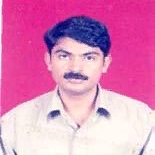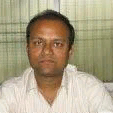International Journal of Image, Graphics and Signal Processing (IJIGSP)
IJIGSP Vol. 6, No. 1, 8 Nov. 2013
Cover page and Table of Contents: PDF (size: 525KB)
Evolutionary Image Enhancement Using Multi-Objective Genetic Algorithm
Full Text (PDF, 525KB), PP.61-67
Views: 0 Downloads: 0
Author(s)
Index Terms
Image processing, multi-objective algorithm, image enhnacement
Abstract
Image Processing is the art of examining, identifying and judging the significances of the Images. Image enhancement refers to attenuation, or sharpening, of image features such as edgels, boundaries, or contrast to make the processed image more useful for analysis. Image enhancement procedures utilize the computers to provide good and improved images for study by the human interpreters. In this paper we proposed a novel method that uses the Genetic Algorithm with Multi-objective criteria to find more enhance version of images. The proposed method has been verified with benchmark images in Image Enhancement. The simple Genetic Algorithm may not explore much enough to find out more enhanced image. In the proposed method three objectives are taken in to consideration. They are intensity, entropy and number of edgels. Proposed algorithm achieved automatic image enhancement criteria by incorporating the objectives (intensity, entropy, edges). We review some of the existing Image Enhancement technique. We also compared the results of our algorithms with another Genetic Algorithm based techniques. We expect that further improvements can be achieved by incorporating linear relationship between some other techniques.
Cite This Paper
Dhirendra Pal Singh, Ashish Khare,"Evolutionary Image Enhancement Using Multi-Objective Genetic Algorithm", IJIGSP, vol.6, no.1, pp. 61-67, 2014. DOI: 10.5815/ijigsp.2014.01.09
Reference
[1]Schaffer, J.D.: “Multi Objective Optimization with vector evaluated genetic algorithms”, In Proceedings of the Ist International Conference on Genetic Algorithm and their Applications, pp. 93-100, 1985.
[2]Fonesca, C.M., and Fleming, P.J. : “Multi Objective Genetic Algorithm”, in IEE Colloquium on Genetic Algorithms for Control Sys.Engineering (Digest No.1993/130),28 May 1993, London, UK:IEE.
[3]Horn, J.H., Nafpliots, N. and Goldberg, D.E.: “A niched pareto genetc alrorithm for multiobjective optimization”, Ist IEEE International Conference on Evolutionary Computation, IEEE World Congress on Computational Intelligence, 27-29 June 1994, Orlando, FL, USA:IEEE.
[4]Srinivas, N., and Deb., K.: “Multiobjective optimization Using Nondominated Sorting in Genetic Algorithms”, Journal of Evolutionary Computation, vol. 2, no. 3, 1994, pp. 221-248.
[5]Zitzler, E., and Thiele, L.: “Multiobjective Evolutionary Algorithms: a comparative case study and the strength Pareto approach”, IEEE Transaction on Evolutionary Computation, vol. 3, no. 4, 1999, pp. 257-271.
[6]Knowles, J.D., and Corne, D.W.: “Approximating the nondominated front using the Pareto archieved evolution strategy”, Evolutionary Computation, vol. 8, no. 2, June 2000, pp. 149-172.
[7]Deb. K., Pratap, A., Agrawal S., and Meyarivan, T.: “A fast and elitist multiobjective genetic algorithm: NSGA II”, IEEE Transaction on Evolutionary Computation, vol. 6, no. 2, 2002, pp. 182-197.
[8]Gonzeles, R.C., and Woods, R.E.: Digital Image Processing, Addison-Wesley, 1987.
[9]Pratt, W.K.: Digital Image Processing, New York:Wiley, 2000.
[10]Saitoh, F.: “Image contrast enhancement using Genetic Algorithm”, in Proceeding of IEEE Internation Conference on System Man and Cybernetics, Tokyo, Japan, vol. 4, Oct. 1999, pp. 899-904. DOI: 10.1109/ICSMC.1999.812529.
[11]Poli, R., and Cagnoni, S.: “Evolution of pseudo-coloring algorithm for Image Enhancement,”, Univ. Birminghan, U.K., Tech. Rep. CSRP-97-5, 1997.
[12]DaPonte, J.S., and Fox., M.D.: “Enhancement of Chest radiographs with gradient operators”, IEEE Transaction on Medical Imaging, vol. 7, no. 2, June 1988, pp. 109-117.
[13]Ramponi, G., Strobel, N., Mitra, S.K., and Yu, T.H. : “Nonlinear unsharp masking methods for image contrast enhancement”, Journal of Electronic Imaging, vol. 5, no. 3, 1996, pp. 353–366.
[14]Zhang, Y., and Rockett, P.I.: “Evolving optimal feature extraction using Multi-objective Genetic Programming: A Methodology and preliminary study on edge detection”, Genetic and Evolutionary Computation Conference (GEECO’05), June 25-29, pp. 795-802, 2005.
[15]Huang, D.S., Li, K., and Irwin (Eds), G.W.: “Evolutionary Image Enhancement for impulsive Noise reduction”, ICIC 2006, LNCS 4113, 2006, pp. 678-683.
[16]Munteanu, C., and Rosa, A.: “Gray-Scale Image Enhancement as an automatic process driven by evolution”, IEEE Transaction on System, Man, and Cybernetics,Part B: Cybernetics, vol. 34, no. 2, April 2004, pp.1292-1298.
[17]Michalewicz, Z.: “Genetic Algorithms+Data Structures=Evolution Program’s”, Berlin, Germany: Springer-Verlag, 1996.
[18]Davis, L.S.: “A Survey of Edge Detection Techniques”, Computer Graphics and Image Processing, vol. 4, 1975, pp. 248-270.
[19]Lim, J.S.: Two-Dimensional Signal and Image Processing, Englewood Cliffs, NJ, Prentice Hall, 1990, pp. 469-476.
[20]Sheet, D., Garud, H., Suveer, A., Chatterjee, J., and Mahadevappa, M.: “Brightness Preserving Dynamic Fuzzy Histogram Equalization”, IEEE Transactions on Consumer Electronics, vol. 56, no. 4, Nov.2010, pp. 2475 - 2480.

